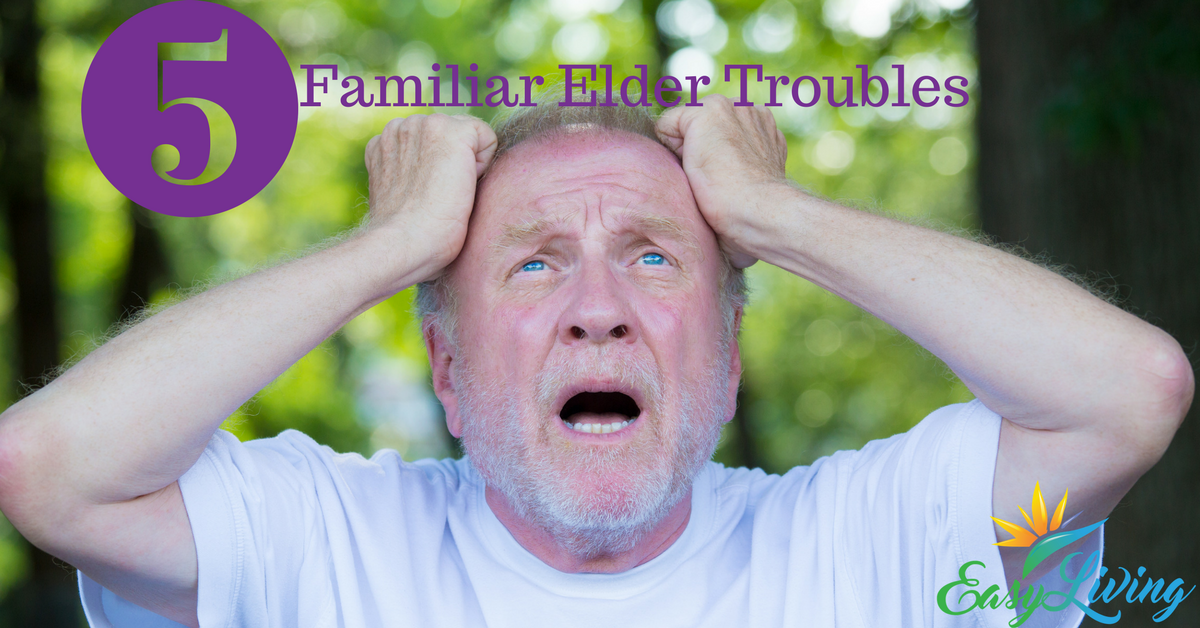The Loneliness of Later Life
About half of seniors who live alone report feeling lonely on a regular basis. Loneliness and social isolation have devastating effects. They are associated with a higher risk of death in seniors. Feelings of loneliness have been linked to cognitive decline, depression, higher blood pressure, and poor overall physical and mental health. Social isolation and loneliness are major predictors of nursing home placement.
Solutions:
- Trained elderly caregivers provide companionship and fun activities based on your interests. They can also plan and accompany you on outings.
- Get a care management assessment. Identify issues (and solutions) that may be holding you back from favorite activities. Find out about services and activities that fit your needs.
- Use technology to stay connected. Set up Skype/Facetime for your elderly relatives. Create a Facebook and email account. Share pictures there or on a picture sharing site. That’s just the start of the ways technology can provide connection and entertainment!
Home, Sweet Home: Managing the Household
We hear from SO many families that Mom or Dad can’t keep up with the home. They notice the cleaning and errands slipping. On a visit, they might realize Mom’s avoiding doing laundry. Or, Dad has fallen trying to change lightbulbs or trim bushes. As much as elderly clients wish to stay at home, the house often becomes a burden (and danger). Adult children are often overwhelmed trying to help.
Solution: A little outside help can go a long way to maintaining a home, safely. Rather than home care as something you’re imposing on elderly parents, think of it as a gift. How nice would it be to have someone help with laundry, do the vacuuming, and keep things organized? Give it a test run as a special gift…for you and your loved one.
Falls: The Quickest Way to Derail Your Plans
One-fourth of elderly Americans fall EACH year. Falls are the leading cause of fatal and non-fatal injuries in the elderly (more than 2.8 million injuries treated in ERs, 800K+ hospitalizations and 27K+ deaths.
About half of fallers will fall again within the year. So, a fall is a warning sign. If you’re lucky enough not to have a major injury the first time, take heed.
Falls are associated with greater functional decline, social withdrawal, anxiety and depression, and an increased use of medical services.Older adults who have fallen are at greater risk of becoming institutionalized regardless of whether they have experienced an injurious fall.
Solutions: Most falls are preventable. Review our falls prevention checklist. For a more comprehensive solution, get a professional home evaluation. Check key factors with a medication review, eye appointment and physical. Common causes include muscle weakness, poor balance and gait, foot problems, and blood pressure/hypotension.
You Are What You Eat
Some studies show older adults living alone eat about two-three less vegetables/day. This, at a time when the body needs more nutrient-rich foods. It is very difficult to heal from surgery or illness without proper nutrition. Seniors living alone often resort to canned and frozen foods. Decreased sense of taste leads to increasing salt and sugar intake.
Solutions: Hire someone to cook meals for you in the home. The smells of cooking and mealtime companionship improve appetite. You can also try out meal services or Meals on Wheels. Set up grocery delivery or shopping help to increase access to fresh, healthy food.
Click Here to get awesome tips for healthy senior eating on a budget.
When the Solution Becomes the Problem: Medication/Medical Management
A study of VA hospitals showed that 44% of elderly patients were given at least one unnecessary drug at discharge.
An analysis by the IMS Institute for Healthcare Informatics found that people aged 65-79 receive more than 27 prescriptions for new drugs each year.
Many medical professionals acknowledge elderly patients get too much aggressive medical treatment. Few patients stop to ask why testing or treatment is being done. They may find they’re spending the majority of their time at doctors. Not all testing or treatment increases quality (or quantity) of life.
Solutions: ALWAYS have a patient advocate. This can be a friend or family member. Better yet, especially during transitions, bring in a professional. Your advocate ensures you understand treatment instructions. He/she can (and should) ask clarifying questions. It is also vital to track your medical history and current treatments. Make notes of medications that cause side effects or are ineffective. Prepare questions before doctor’s visits.
The Driving Dilemma
Most older drivers are safe drivers. But, age-related declines in vision and hearing, as well as some health conditions and medications, can affect driving skills. The elderly have a higher crash rate, and are more seriously injured in accidents. Drivers with dementia show levels of impairment similar to drunk drivers.
On the flip side, driving keeps elderly persons mobile. When seniors give up driving, they tend to become isolated.
Solutions: Driving services like Uber and Lift may work depending on comfort with technology. Such services, and others, are creating unique solutions for elders too. Your local community will typically offer various senior transportation services. Hiring a private driver through a home care company fits your needs/schedule, and can be surprisingly affordable.
We share many great solutions for these “five elderly troubles” in our (Not Just Senior) Services to Make Life Easier article.
Like this?
Follow us on Facebook for more!

